We explore the life of Victor Hugo and his main literary works. In addition, we discuss why he is regarded as one of the major figures of French and European literature.
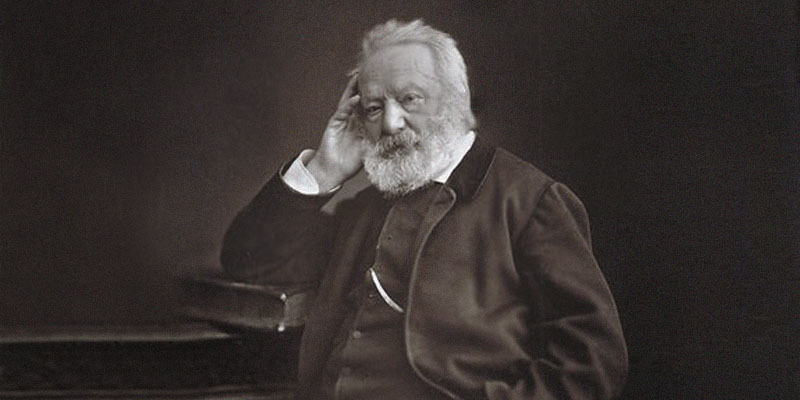
Who was Victor Hugo?
Victor Hugo was a French novelist, poet and playwright, considered one of the greatest exponents of French literature and one of the most renowned intellectuals of the 19th century. His novels Les Misérables and The Hunchback of Notre-Dame are among the most celebrated and best-known works in European literature.
Brother of writers Eugène and Abel Hugo, Victor was also a political figure deeply committed to France and its history, and a fervent opponent of Napoleon III and the Second French Empire. For this reason, his work not only encompasses literary fiction, but political and moral speeches, as well as travel chronicles.
Victor Hugo was a central figure of European Romanticism. His work was acclaimed by writers, intellectuals, and the general French populace alike. Upon his death, the nation honored him with a state funeral, and he was buried in the Panthéon in Paris.
- See also: Homer
Birth and youth of Victor Hugo
Victor-Marie Hugo was born on February 26, 1802, in the town of Besançon, in Eastern France. He was the youngest of the three sons of General Joseph Léopold Sigisbert Hugo (1773-1828), battalion commander of the Dubois imperial regiment, and his wife Sophie Trebuchét (1772-1821). His two older brothers were Abel (1798-1855) and Eugène (1800-1837).
His early years were marked by frequent moves due to his father’s position in the Napoleonic army: Paris, Elba, Naples, and Madrid were among some of the places young Victor got acquainted with during his childhood. His mother, however, always stayed in Paris, as the couple did not have a very stable relationship.
In 1813, the couple finally separated as a result of a love affair between his mother and General Victor Lahorie, Victor Hugo's godfather, to whom he owed his name.
These were unstable times for the Hugo brothers, who alternated between their father and mother’s homes, until Napoleon's defeat in 1815, which gave them greater stability. That year, Victor and his brother Eugène entered the Pension Cordier and then the Lycée Louis-le-Grand, where they studied until 1818. Victor then continued his studies at the University of Paris, in the field of law.
During those youthful years, Victor discovered his literary vocation in a self-taught way: he filled entire notebooks with verses and kept personal diaries in which, at just fourteen, he wrote: "I shall be Chateaubriand or nothing". His ambitions were exceptionally high, and his mother and his brother Eugène were his faithful readers.
Thus, in 1817, he participated in a poetry contest sponsored by the French Academy, receiving an honorable mention for his poem Trois lustres à peine. In 1819, he won his first poetry prizes awarded by the Floral Games of the Academy of Toulouse, and another in 1820 for his poem Moïse sur le Nil.
In 1819, encouraged by his mother and his recent successes, Victor founded the literary periodical Le Conservateur littéraire along with his brothers, which published the earliest essays of poets Alphonse de Lamartine and André de Chénier. The publication ceased to exist in 1821, the same year his mother died suddenly.
Marriage and early publications
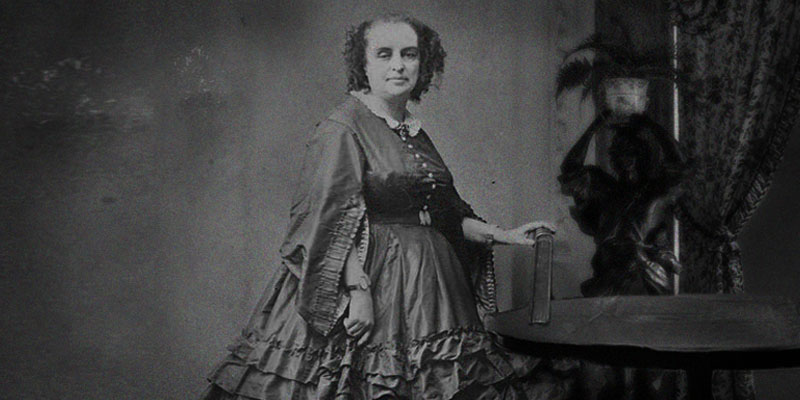
At the time of his mother's death, Victor Hugo was courting the young Adèle Foucher, daughter of friends of his parents’ and childhood friend of his. He wrote to her around 200 love letters even though his brother Eugène was also in love with her.
In 1822, the successful publication of Victor's first collection of poems, Odes et poésies diverses, earned him an annual pension of one thousand francs from King Louis XVIII. Counting on this income, Victor felt encouraged to ask Adèle in marriage. At the age of 20 and with 1,500 copies of his first book sold, Victor Hugo married the woman who would be his wife for forty-six years.
His brother Eugène plunged into a deep depression due to heartbreak. Later on, he manifested a mental illness that forced him to spend the rest of his days in an asylum, until his death in 1837.
Victor and Adèle shared a close bond, which brought five children into the world: Leopold, who died some weeks after his birth, Léopoldine (1824-1843), Charles (1825-1871), François-Victor (1828-1873), and Adèle (1830-1915). Following his marriage, Victor Hugo began to write his earliest fiction works.
In 1823 he published his first novel, Han d'Islande (Han of Iceland), which was met with little enthusiasm. A positive review by author Charles Nodier (1780-1844), however, led to a friendship between the two writers, which opened for Victor Hugo the doors of the Bibliothèque de l'Arsenal, where the Cénacle literary group gathered, the cradle of French Romanticism.
Throughout 1824, he collaborated in the monthly publication La Muse Française (1823-1824), the official dissemination channel of the Romantic literary movement, and published a new collection of verses: Nouvelles Odes (New Odes), dedicating some poems to his father. He also published Bug-Jargal, a novel on which he had begun working when he was just 16.
In 1827 his first play, Cromwell, came out, which broke with the classical dramatic tradition and consisted of 6,000 verses. Although the play was never performed in the theater, it was the content of its preface that caused a literary stir. This text is considered the foundation stone of French Romanticism.
The following year, his father died. Yet, the bereavement did not stop Victor Hugo's creative streak. That same year he published another collection of poems Odes et Ballades (Odes and Ballads), and the novel Le Dernier Jour d'un Condamné (The Last Day of a Condemned Man). The following year saw the release of Les Orientales, a collection of poems characterized by romantic exoticism. In 1830, the romantic drama Hernani was published, followed in 1831 by Marion de Lorme and Notre-Dame de Paris (The Hunchback of Notre-Dame), a novel that definitively catapulted Victor Hugo into fame.
Literary fame of Victor Hugo
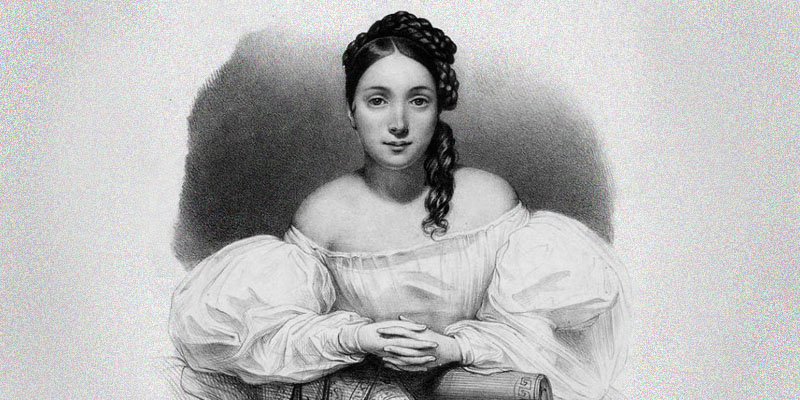
Literary acclaim brought the Hugos new friends, such as painter Eugène Delacroix (1798-1863), playwright Alfred de Musset (1810-1857), historian Prosper Mérimée (1803-1870), poet Alphonse de Lamartine (1790-1869), and literary critic Charles Augustin Sainte-Beuve (1804-1869), with whom Adèle had an affair in 1831.
Victor Hugo also frequented composers Hector Berlioz (1803-1869), Franz Liszt (1811-1886), and Giacomo Meyerbeer (1791-1864), as well as his childhood idol, French prose writer François-René de Chateaubriand (1768-1848). Around that time, he produced several collections of poems, including his famous Les Feuilles d’automne (Autumn Leaves).
However, his real successes during those years were in the theater. The 1830 debut of Hernani turned Victor Hugo into the icon of a movement seeking to renew theatrical forms, led by poet and playwright Théophile Gautier (1811-1872) and inspired by the changes brought about by the Revolution of 1830. These were politically turbulent times, which was reflected in the arts.
Some of Hugo's works were banned by the government, including Marion de Lorme in 1829 (though it premiered in 1832) and Le roi s'amuse (The King Amuses Himself), the following year. This only magnified Hugo's stature as a revolutionary playwright.
In 1833, he met actress Juliette Drouet, the most important of his many mistresses, who would become his secretary and traveling companion. From that date until her death in 1883, Juliette devoted her life to Victor Hugo. She gave up her acting career and lived practically secluded, only for the company of the French novelist.
During those years, Hugo did not cease to produce new stage plays. In 1841, his talent was recognized by the French Academy, where he was finally accepted after three failed attempts due to objections of the opponents of Romanticism.
However, his creative streak soon came to an end: in 1843 his newlywed daughter Leopoldine and her husband drowned in an accident. This family tragedy profoundly affected Victor Hugo, who, after writing a few more verses of Les Contemplations (The Contemplations), plunged into a literary silence which lasted nearly eight years.
The Revolution of 1830, also known as the July Revolution or the Three Glorious Days, was an uprising of the middle and working classes against the autocratic government of King Charles X of France. It took place in Paris, in July 1830, when the king dissolved the parliament following elections that were unfavorable to him. In his place, the so-called "citizen king", Louis-Philippe I of France, was elected, and France adopted a liberal Constitution.
Politics and exile
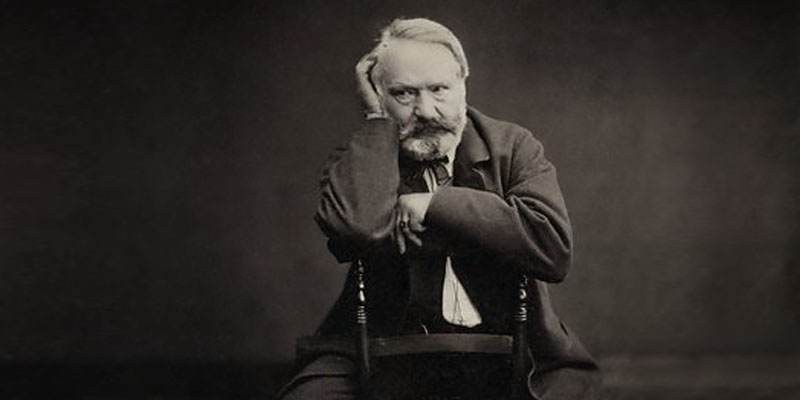
As the years went by, Victor Hugo began to distance himself from the royalist stance. Instead, he came closer to social sectors that fought for democracy and the establishment of the French Republic, eventually becoming a fervent supporter of republicanism.
This political transition began around 1844, when his literary stature allowed him to become a confidant of King Louis-Philippe I, which Victor Hugo saw as an opportunity to introduce changes to the system. In 1845, he was appointed a peer of France, a distinction reserved for relatives of the king and other distinguished personalities.
When a new revolution broke out in 1848, Victor Hugo was mayor of the eighth district of Paris and was involved in the repression of the workers' riots in June. Later, however, he openly criticized the massacre of the protesters. That same year, he founded the newspaper L'Événement, and was elected deputy to the National Assembly of the Second Republic, on the conservative side.
The Revolution of 1848 was a popular uprising that took place in Paris in February of that year, which ended the monarchy of King Louis-Philippe I and established the Second Republic. The events were triggered by the government's prohibition of the freedom of assembly, an attempt to curb the proliferation of opposition meetings. This revolution sparked the so-called "Springtime of the Peoples", which involved similar revolts throughout Europe, and was a key event in modern Western history.
In 1849, following the dissolution of the National Assembly, Victor Hugo's political stance took a definitive turn. While serving as a deputy in the National Assembly, he delivered his famous speech on misery and poverty (Détruire la misère, "End the misery"), and broke with his former political allies, criticizing their reactionary stances, and severing ties with the then president Charles-Louis Napoléon Bonaparte.
In 1851, the republican government staged a self-coup d'état, with President Bonaparte proclaiming himself Emperor of the French under the name Napoleon III. When persecution of the opposition began, Victor Hugo fled to Brussels, Belgium. There he criticized the coup and wrote several political works, such as Napoléon le Petit (Napoleon the Little) and Histoire d’un crime (History of a Crime). He also published a collection of satirical poems: Les Châtiments (The Punishments), in 1853.
His publications led to his expulsion from Belgium, prompting Hugo to relocate to the island of Jersey in the English Channel, in the company of Juliette. He devoted himself to writing and spiritualism, partly in the hope of contacting his deceased daughter. However, in 1855, he was once again expelled, this time for openly criticizing the visit of Queen Victoria of England to France.
Victor Hugo moved to the island of Guernsey, and immersed himself in literary creation. In 1856, his work Les Contemplations (The Contemplations) came out, regarded as his magnum opus and a faithful reflection of the existential torments that afflicted him at the time.
He wrote two epic poems of a metaphysical nature: La Fin de Satan (The End of Satan) and Dieu (God), both about the confrontations between good and evil. Neither was published until after his death. He also completed the first volume of his monumental epic-historical poem La Légende des siècles (The Legend of the Ages), with the second and third volumes coming out years later, in 1877 and 1883, respectively.
In 1859, the French government proclaimed an amnesty and a return to France for political prisoners and exiles, albeit under the same system of government. Nevertheless, Hugo and other French expatriates rejected the proposal.
Les Misérables
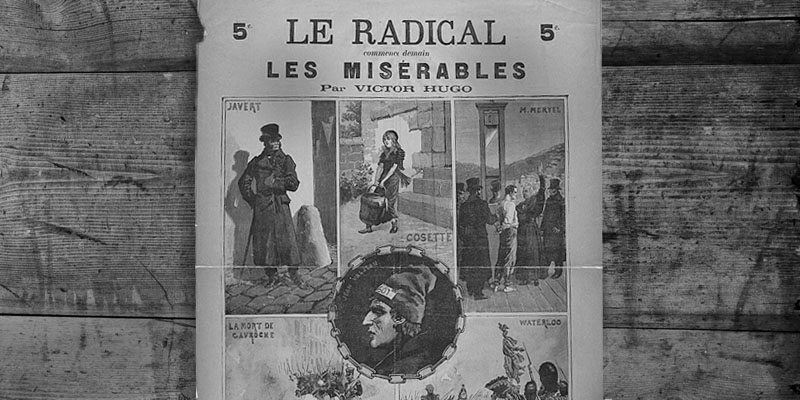
Shortly after, Victor Hugo returned to fiction. He took up an abandoned novel Les Misérables, published in 1862, which was to become his most famous work. The novel was an immediate success in France and was quickly translated into other languages, earning him immense international fame.
Regarded as one of the greatest novels of 19th-century European literature, Les Misérables tells a story of love-hate and resentment towards society, embodied in its protagonist, Jean Valjean, sentenced to five years in prison for stealing bread to feed his family.
This work constitutes a study of the society of the time, touching upon poverty, conservatism, and classism. It also provides an account of the Parisian uprising of 1832 and the funeral of Jean Maximilien Lamarque (1770-1832), a renowned French revolutionary military figure. As such, it can be seen as a novel that is simultaneously epic, realistic, and romantic.
Les Misérables benefitted from both a massive advertising campaign and the fame that Hugo had already attained, especially following the success of Notre-Dame de Paris (The Hunchback of Notre-Dame). However, the novel met with mixed reviews, particularly from the most conservative sectors, who frowned upon the sympathetic portrayal of the revolutionaries in the text.
Some criticized the novel's excessive sentimentality, and writer Gustave Flaubert (1821-1880) lamented that the characters "all speak very well, but all in the same way". On the other hand, authors like Charles Baudelaire (1821-1867) praised Hugo's success. The Catholic Church, in turn, banned the book, including it in its Index Librorum Prohibitorum.
Les Misérables was followed by another novel, a tribute to the people of Guernsey, entitled Les Travailleurs de la Mer (Toilers of the Sea), in 1866, and L'Homme Qui Rit (The Man Who Laughs), in 1869. However, those years were overshadowed by the news of the death of his wife, Adèle, on August 27, 1868.
In 1863, Adèle Hugo published a biography of her husband, entitled Victor Hugo raconté par un témoin de sa vie. This biography offers readers insights into Victor Hugo's thought and literary talent.
The complicated return to France
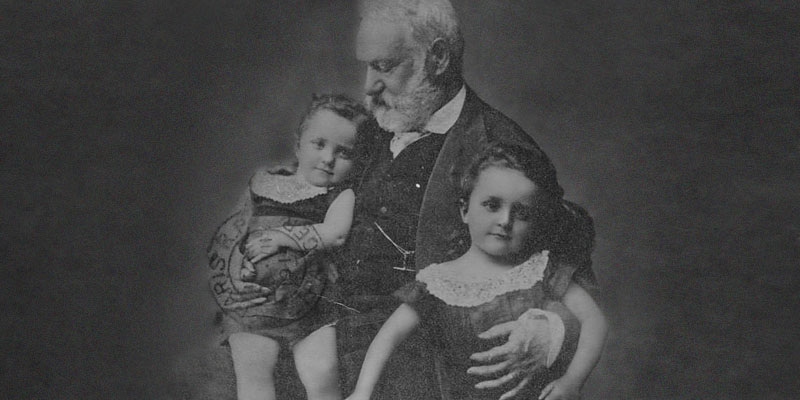
In 1870, the Franco-Prussian War broke out, resulting in the fall of the French Empire and the establishment of the Third French Republic. Victor Hugo could at last return to his homeland. In 1870, he participated in the defense of Paris, now under the republican government, and in 1871 he was elected deputy to the National Assembly, a position to which he resigned shortly after. That year, his son Charles died unexpectedly, and he had to travel to Belgium to arrange inheritance matters.
While in Brussels, the Paris Commune uprising broke out. Victor Hugo strongly criticized the subsequent brutal repression, leading to his expulsion from Paris. He sought refuge in Luxembourg, Vianden, Diekirch, and Mondorf-les-Bains, successively, for several months, during which time, he finished his poetry collection L'Année terrible.
Towards the end of 1871, he returned to Paris, where he accepted to run in the 1872 election for the Republicans. However, he was viewed as a "radical", and his proposal to pardon the communards was poorly received. That same year he returned to Guernsey, where he wrote his last novel, Quatre-vingt-treize (Ninety-three), set during the French revolutionary Reign of Terror, and published in 1874.
In 1873, he settled again in France, this time devoting himself to the upbringing of his grandchildren Georges and Jeanne. The experience was so gratifying that he wrote L'Art d'être grand-père (The Art of Being a Grandfather), a collection of lyrical poetry on childhood. Three years later, he was elected senator of the Republic, actively opposing President Patrice de Mac Mahon when he dissolved the lower house of parliament.
His health began to deteriorate. In 1878, after delivering the opening speech at the International Literary Congress, he retired to Guernsey for four months to rest. His ailments prevented any further literary production, but various poetry anthologies continued to be published during those years.
Death and legacy of Victor Hugo
In 1883, his beloved Juliette died, aged 77. Victor Hugo was over 80 years old himself. Two years later, on May 22, 1885, he died in the French capital, where he was given a state funeral.
His remains were mourned under the Arc de Triomphe, in an unprecedented funeral attended by a massive crowd of intellectuals, politicians, and ordinary people. Nearly two million people accompanied his coffin in the funeral procession to the Panthéon, his final resting place.
Victor Hugo’s literary legacy was enormous, spanning the genres of poetry, narrative, drama, political oratory, and travel chronicles. During his exile in Guernsey he also cultivated drawing and photography, leaving behind a photographic archive of almost 350 works. His towering literary stature is celebrated throughout the world, and in France he is revered as one of the major national poets.
As for his political views, Hugo was a fervent defender of the republican system, and in his speeches he strongly advocated for the fight against social segregation and inequality. He was one of the few men of his time to raise his voice for women's rights, and promoted the idea of a United States of Europe as a solution to the constant conflicts between the powers in the continent.
Over time, Victor Hugo's image became a symbol of the French republic and a national artistic icon, which inspired the French resistance during World War II. His works have been extensively translated and adapted into film, opera, animation, and television.
Major works of Victor Hugo
Victor Hugo's body of work was exceptionally extensive and varied. Among his most renowned works are:
Prose fiction
- Les Misérables (1862)
- L'Homme qui rit (The Man Who Laughs - 1869)
- Quatre-vingt-treize (Ninety-three - 1874)
Poetry
- Les Feuilles d’automne (Autumn Leaves - 1832)
- La Légende des siècles (The Legend of the Ages - 1859)
- L'Année terrible (1872)
Plays
- Cromwell (1827)
- Hernani (1830)
- Napoléon le Petit (Napoleon the Little - 1852)
- Histoire d’un crime (History of a Crime - 1877)
References
- Barrère, J. B. (2023). Victor Hugo (French writer). The Encyclopaedia Britannica. https://www.britannica.com/
- Hugo, A. (1863). Memorias de Víctor Hugo. Trad. Nemesio Fernández Cuesta. Imprenta Las Novedades.
- Ministerio de Cultura de Argentina. (2022). Víctor Hugo, el último gigante. https://www.argentina.gob.ar/
- Telesur. (2023). Conozca la vida del escritor francés Víctor Hugo. https://www.telesurtv.net/
Explote next:
Was this information useful to you?
Yes NoThank you for visiting us :)